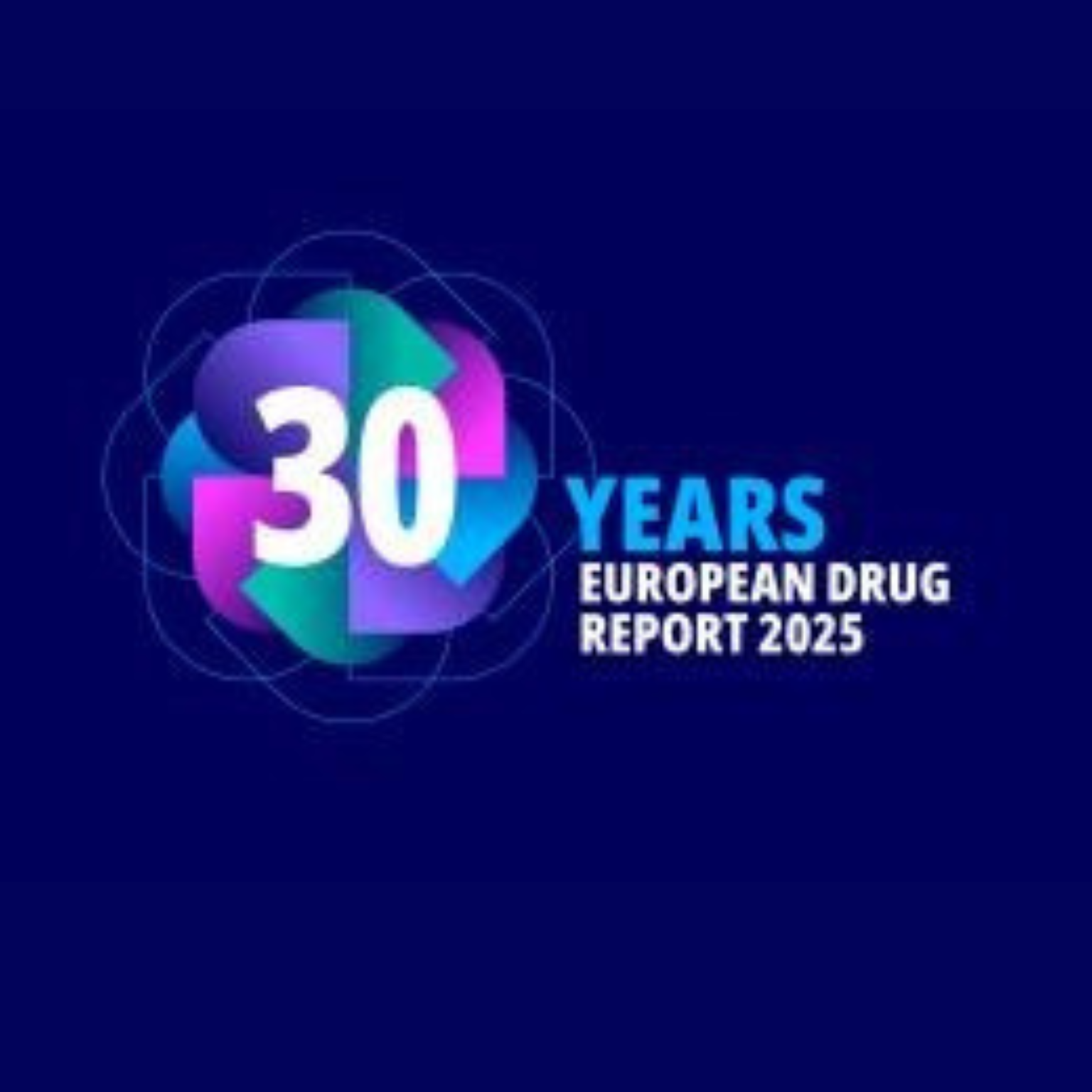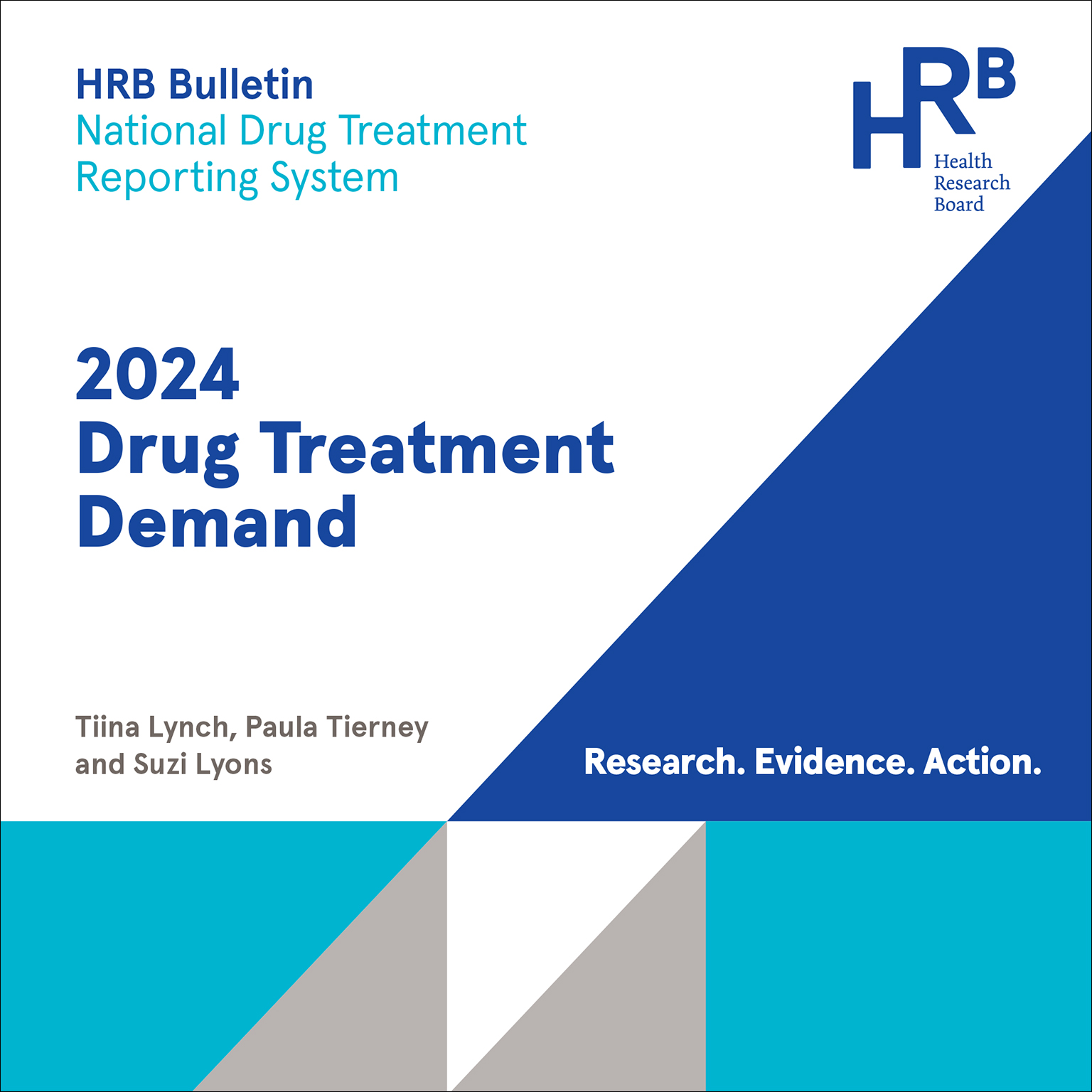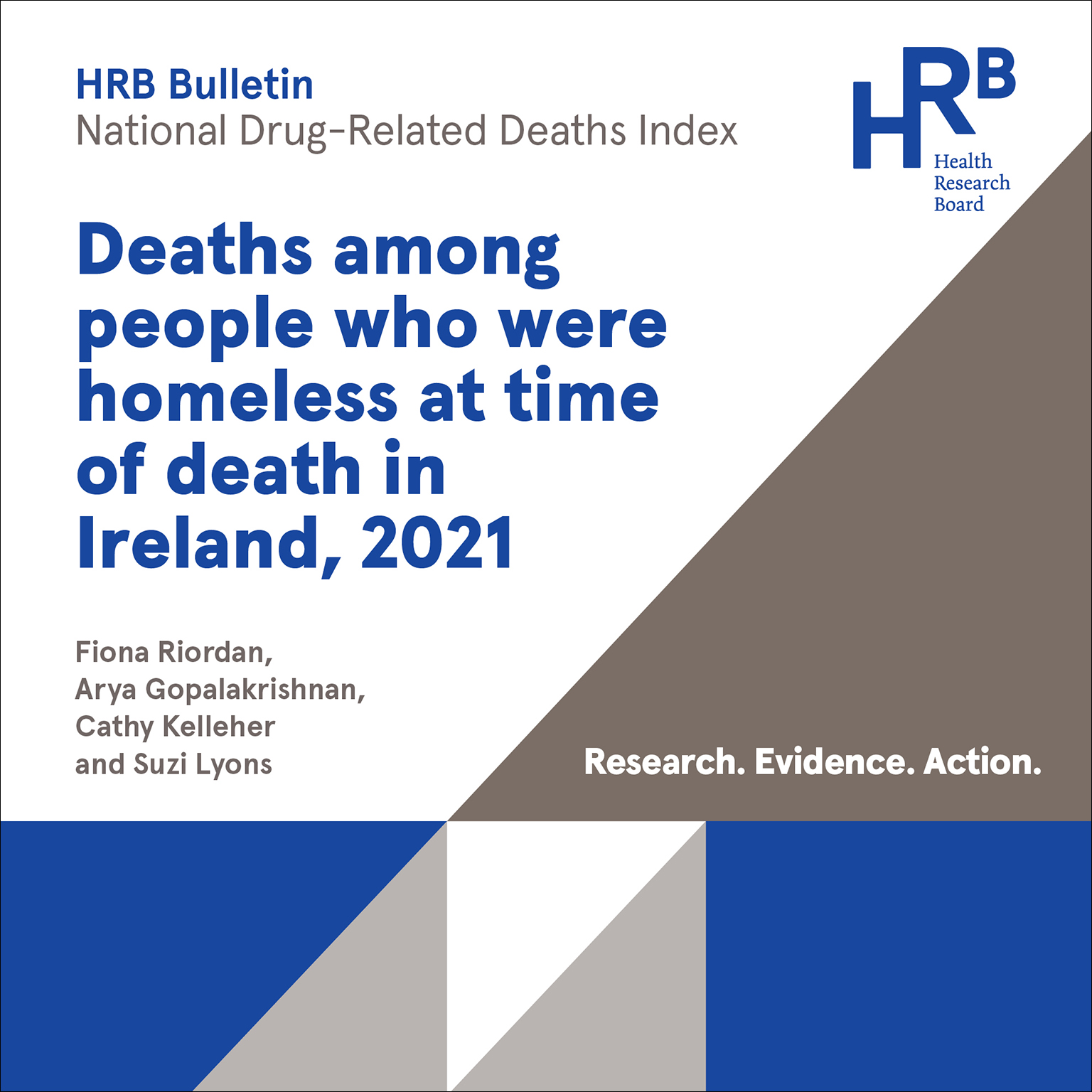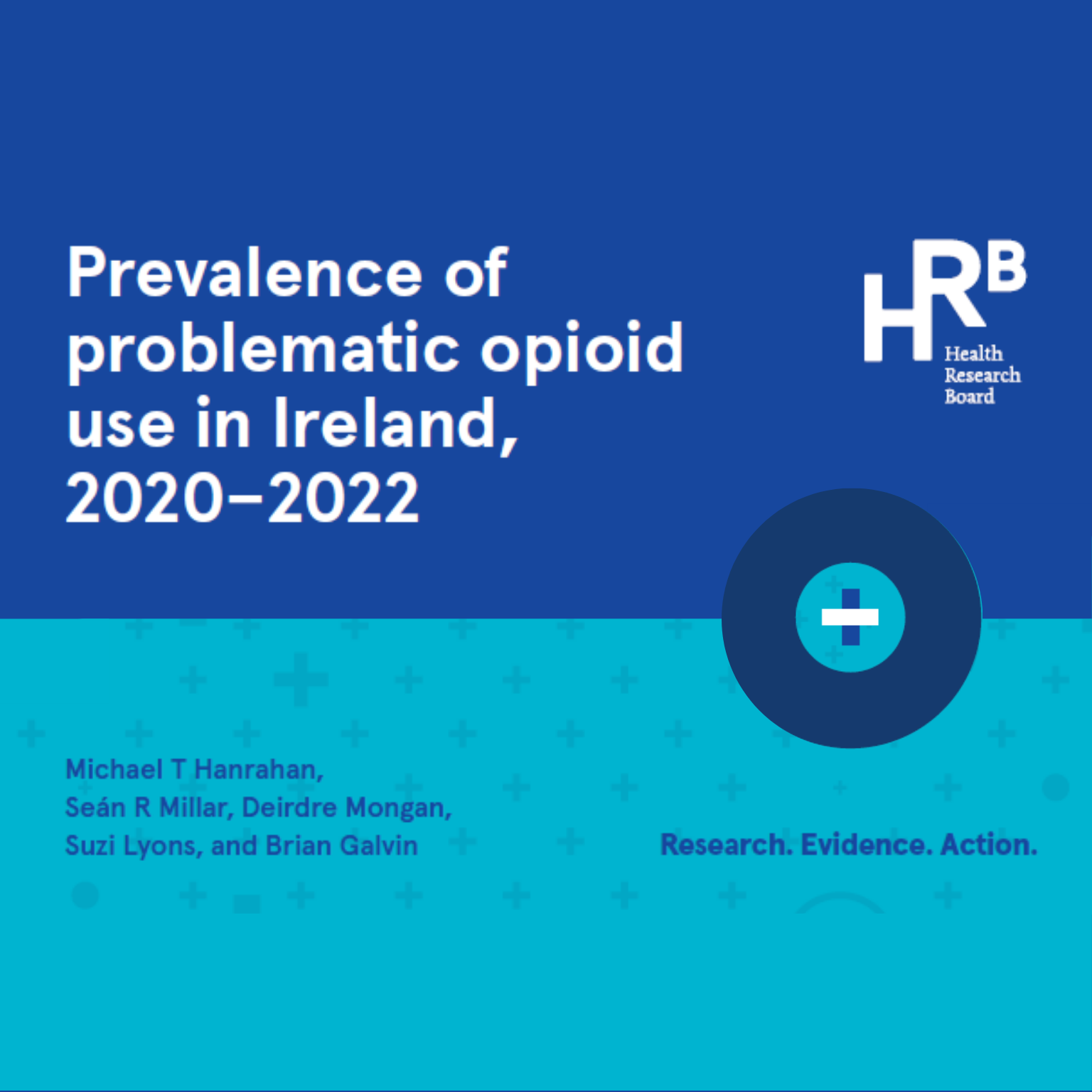First HRB Impact Award recognises change-maker in health
The Health Research Board is presenting the first HRB Impact Award 2019 to Professor Mary McCarron, from Trinity College Dublin. The award recognises how her research has transformed the health, care, and living environments for people ageing with an intellectual disability.
9 min read - 7 Feb 2019
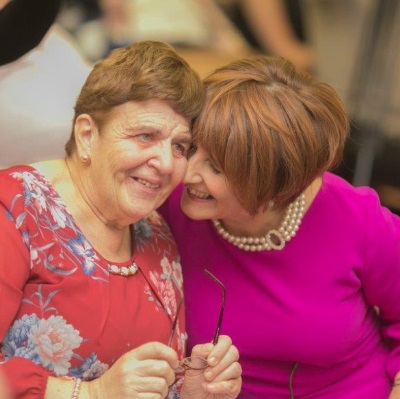
As we approach international Women in Science day (11 February), what Prof McCarron has achieved reinforces the impact that women in science can have to improve lives and change policy and practice.
Presenting the award, Dr Darrin Morrissey, Chief Executive at the Health Research Board said;
‘The HRB Impact Award recognises people who use their research to create real changes in health and care. Prof McCarron has an incredible track record of translating her research into practice. As a result she is now is delivering better health and care, creating award winning housing projects and driving policy change that is transforming the lives of people with intellectual Disability as they age.’
‘The approach she has taken, involving this community and giving them a real voice, is also having global impact. Many of her findings, and the change she is leading, are directly transferable to the general population who are ageing too, which is attracting major interest both nationally and internationally.’
Accepting the HRB Impact Award, Prof Mary McCarron, Dean of the Faculty of Health Sciences and Professor of Ageing and Intellectual Disability at Trinity College Dublin said;
‘It is a very humbling moment to receive this level of recognition. I am so appreciative of the support I have received from the Health Research Board over so many years. I could not have achieved any of this without the many colleagues who have worked with me, and the students, research fellows and interviewers who have made all of the data collections and analyses possible’.
‘Most of all, I am grateful to the people with intellectual disabilities, their families and the service providers who have gone above and beyond to collaborate with us, support us, guide us, and, ultimately, to give us answers to help shape ageing for people with ID in Ireland. Not to mention more questions to investigate’.
According to Mary, ‘This Award recognises work I have done to date, alongside people with ID, my team and international colleagues. I can see the real benefits of what has been achieved, but there is much more to do. One of my key achievements has been the establishment of a Memory Clinic at the Daughters of Charity Service which has transformed the lives of people who access it. However there is real inequity of access, with many people and their carers struggling to get a diagnosis and post diagnostic support.’
People with an intellectual disability are living longer, but continue to experience significant health disparities, with the average age of death 19 years younger than for the general population. Health problems often go unrecognised and unmet, as people with ID are largely excluded from health screenings and targeted health promotions. They are often absent from the decisions that affect them the most, including financial and retirement planning, choice of residence and desired levels of care.
‘The legacy I want to leave is that we have the services and supports available so that every person with ID will experience happy and healthy lives in old age’.
‘With that in mind, I am in the process of establishing a national Memory Clinic with satellite clinics around the country which will provide the proper infrastructure for diagnostics and care for everyone in Ireland with ID and dementia. I will develop preventive interventions that reduce the risk not just of dementia but of a whole range of chronic conditions we have found. This is not about doing research simply as an academic pursuit. It is about taking that research to the people who matter. In this case, people with ID themselves, their families and caregivers, government, and then translating the findings to inform and drive change’.
Prof McCarron’s initial research, in 1999, showed for the first time that people ageing with Down syndrome were the largest genetically predisposed group to dementia. This was a concern for all persons with an intellectual disability because life expectancy for this group was increasing. This led her to ask – what does this mean for care? And what do we need to know further about the experiences, joys and risks of ageing for people with intellectual disabilities?
Putting the patient at the centre of care, she set up the first ever longitudinal comparative study on ageing in persons with ID (IDS-TILDA) as a supplement to The Irish Longitudinal Study on Ageing (TILDA). It was the first study in the world to directly compare the ageing experience of people with ID to the general population. The data gathered shows that ageing is so similar and yet so different in many ways for people with intellectual disabilities. The data also provides a true understanding of how lives and chronic conditions change over time.
This understanding was the springboard for real change. This data by itself was just that, data. But by involving people with ID and their carers, Mary has brought the research to life and put it to work for the benefit of people with ID.
Mary and members of the research team use their findings to improve health, inform policy, instigate change in services and transform lives. This is the very premise of the HRB Impact Award.
Some examples of her research impact include: –
Improving health
- Given the early onset of dementia for people with ID, Prof McCarron is working with The National Dementia Office and Government to establish the first National Memory Clinic for people with ID.
- 86% of IDS TILDA participants identified as being sedentary or underactive. This led to the Physical Activity Leaders programme where 32 people with ID were trained to promote physical activity among 300 peers in Ireland and Spain. This was a collaboration with the European Institute of Technology, University of Barcelona and Age & Opportunity.
- Chronic constipation is a serious health issue for people with ID. Prof McCarron is at the forefront of introducing a National Intervention Programme, working with the National Federation of Voluntary Bodies and people with ID and their carers across the country.
Improving services
- Design and establishment of Willow View and Meadow View homes at the Daughters of Charity Disability Support Service for people with ID and dementia. These were awarded the 2014 Specialist Care Centre of the Year and Building Project of the Year by the Irish Health Care Awards.
- Developing an online course, Improving Health Assessments for people with ID, which attracted 3,000 learners from more than 100 countries and resulted in documented improvements to health services globally.
- Systematically evaluating quality of life outcomes and costs associated with moving from congregated to community settings for people with ID.
Transforming lives
- Co-producing the Journeys in Creation exhibition with people with ID to challenge stereotypes and misconceptions, while also highlighting the invisibility of those ageing with ID in order to build capacity for ageing research.
- Working with the Irish Hospice Society through their Compassionate end of life in residential care settings – A Quality Improvement Approach. Mary and her team developed three resources to help carers and people with ID talk about and plan for end of life, including guidance on how to facilitate end of life discussions.
Informing policy
- Facilitating national consultation for Positive Ageing Indicators for people with ID with the Department of Health
- Informing the National Dementia Strategy with the Department of Health
- Informing Shaping the future of Intellectual Disability Nursing in Ireland with the Health Services Executive
Building a research workforce
The IDS TILDA data and Mary’s constant mentoring has already lead to:
- 10 PhDs, 1 MD and 10 MScs (complete) and 5 PhDs, 1 MD and 3 MScs (in progress), attracting researchers from Ireland, Australia, Saudi Arabia, the United Kingdom, the United States, Taiwan, Spain and the Netherlands.
- Training for 34 field workers, 4 research project managers and 20 researchers.
- Individuals with ID are now involved in training field workers, undergraduate and graduate students at Trinity College, and in the development of research instruments and accessible reports.
Having global impact
The fact that many of the findings are also directly transferable to the general population as they age has attracted a lot of international attention. In particular, Willow View and Meadow View homes at the Daughters of Charity Disability Support Service are considered an international exemplar of best practice and regularly visited by national and international clinicians, service providers, researchers and government staffs to inform the design and development of their initiatives.
Watch the presentation cememony and acceptance speech on the HRB You Tube channel.
For more information or images from the Award ceremony contact
Gillian Markey
Health Research Board
m 087 2288514 e gmarkey@hrb.ie
About HRB
The HRB is the lead funding agency for health research in Ireland. It also manages four national health information systems in the areas of drug use, drug deaths, disability and psychiatric inpatient reporting. The HRB Evidence Centre conducts reviews for the Department of Health to inform health policy making. We also manage the HRB National Drug Library.
We want the research that we fund and the work that we do to: –
- deliver real benefits for people’s health
- transform the way healthcare is delivered
- provide information and evidence that informs decisions about health care
- advance health research and data infrastructure
- promote excellent training in health research
- generate economic returns through healthcare innovation and economic development.
The HRB Impact Award was established to acknowledge a researcher whose work has had an outstanding impact on people’s health, and or health policy and practice. Nominations for the Award were assessed by an International Panel who selected the overall winner.
About IDS-TILDA
IDS-TILDA is a longitudinal study researching ageing in Ireland among people with an intellectual disability aged 40 and over. This study is the first of its kind in Europe, and the only study able to directly compare the ageing of people with intellectual disability with the general ageing population.
The underpinning values of IDS-TILDA are inclusion, choice, empowerment, person centred, the promotion of people with intellectual disability, the promotion of best practice and to make a contribution to the lives of people with intellectual disability.
HRB Impact Award 2025
9 min read - 7 Feb 2019
